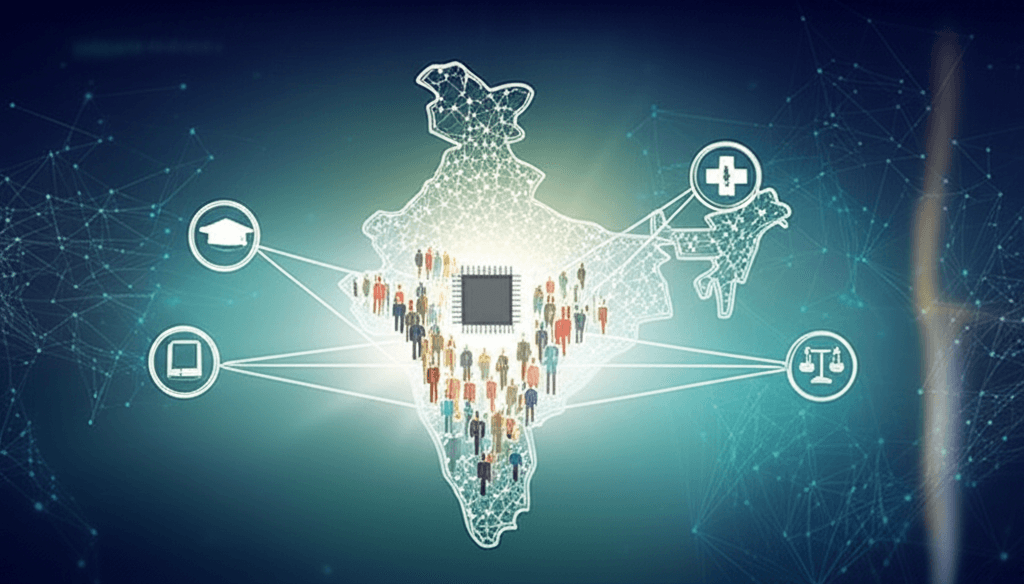Billionaire Khosla: AI to bring India universal services for pennies
Khosla's vision for India: Harnessing AI to deliver universal, affordable education, healthcare, and justice nationwide.
August 3, 2025

Billionaire venture capitalist and co-founder of Sun Microsystems, Vinod Khosla, has articulated a bold vision for India's future, urging the nation's leadership to harness the power of artificial intelligence to deliver essential public services to its entire population. In a recent podcast, Khosla stated that if he were in Prime Minister Narendra Modi's position, he would prioritize making services like education, healthcare, and legal advice universally accessible through AI, potentially for less than a dollar a month per person.[1] He emphasized the critical role of government policy in realizing this ambitious goal, suggesting that AI could be integrated with India's existing digital public infrastructure, such as Aadhaar and the Unified Payments Interface (UPI), to create a transformative impact on a national scale.[1][2] Khosla's proposals have ignited a significant conversation about the potential for AI to act as a societal equalizer in India, a nation with a vast and diverse population.
Khosla's vision for an AI-powered India extends across several key public service domains, with a particular focus on education. He has repeatedly argued that AI-driven tutors could provide a higher quality of personalized education to every child in India than what is currently available even to the affluent.[3][4] He points to platforms like CK-12, an ed-tech company founded by his wife, as an example of how AI can assess a student's knowledge, identify learning gaps, and tailor instruction accordingly, often more effectively than a human tutor.[3][5] In his view, this would render traditional college degrees obsolete, as individuals could continuously learn and pivot between different fields without the lengthy commitment of formal higher education.[3] The implication is a radical democratization of knowledge and skills, empowering individuals regardless of their socioeconomic background.
Beyond education, Khosla sees immense potential for AI to revolutionize healthcare and legal services in India. He envisions a future where every Indian has access to a free, 24/7 primary care physician powered by AI.[6] This AI doctor could provide initial diagnoses, manage chronic conditions, and offer basic health advice, dramatically increasing the scale and accessibility of primary care.[6] Similarly, he imagines a system where legal expertise is no longer a luxury, with AI providing free legal advice and potentially even assisting with judicial processes, thereby reducing the backlog in India's courts and making justice more accessible to the common citizen.[3] Khosla has been a long-time proponent of AI in medicine, having written a decade ago about the potential for algorithms to outperform doctors in certain tasks.[2]
The foundation for this AI-driven public service revolution, according to Khosla, is already in place with India's digital public infrastructure. He frequently draws parallels between his vision and the successful implementation of Aadhaar and UPI.[1] Aadhaar provided a unique digital identity to over a billion Indians, and UPI created a seamless and low-cost digital payment ecosystem that has largely replaced the need for services like Visa and Mastercard, which he describes as a "tax" on consumers.[1][2] Khosla argues that just as these systems have transformed identity verification and financial transactions, a similar national-level AI platform could deliver a wide range of essential services. He has even offered to provide the necessary technology for free to the Indian government to build these services, emphasizing that the goal is public welfare, not profit.[6]
Khosla's proposals are not without their broader economic and social implications. He is a firm believer that AI will be a powerful deflationary force, driving down the cost of expertise and services across the board.[7] He predicts that AI will be able to perform 80% of the tasks in 80% of all jobs within the next few decades, leading to a future of abundance where the need to work for an income is significantly reduced.[8][9] This, he acknowledges, will be a disruptive transition, and he has advocated for considering a universal basic income to support those whose jobs are displaced by technology.[6] While he recognizes the risks associated with AI, he remains a "techno-optimist," arguing that the potential benefits for humanity far outweigh the dangers, and that it is crucial for nations like India to be at the forefront of this technological revolution to shape their own destinies.[6][2] Khosla's call to action is a challenge to the Indian government to think boldly about the role of technology in governance and to leverage AI not just for economic growth, but for the fundamental well-being and empowerment of all its citizens.